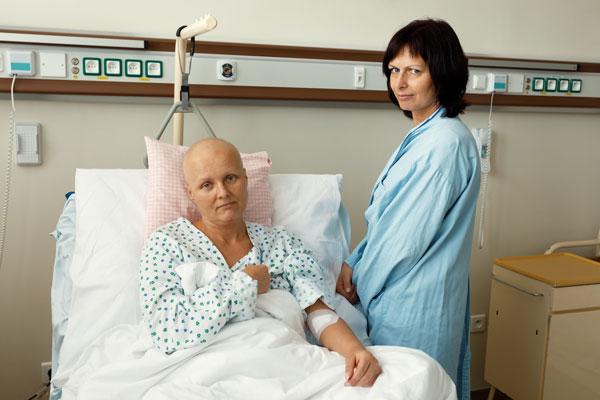Oncology, the branch of medicine dedicated to the study, diagnosis, and treatment of cancer, is a crucial and rapidly evolving field in healthcare. For aspiring medical professionals considering an oncology career path and specializations, it’s essential to understand the realities of this challenging yet rewarding specialty. In this comprehensive guide, we’ll explore the various aspects of oncology, from daily responsibilities to career paths, and shed light on what it truly means to be an oncologist in today’s medical landscape.
Understanding Oncology: More Than Just Cancer Treatment
The Multifaceted Nature of Oncology
Oncology is a complex and diverse field that extends far beyond the common perception of simply treating cancer. Medical oncologists work closely with surgical and radiation oncologists to provide comprehensive care for patients with various types of cancer. Additionally, many oncologists collaborate with researchers and engage in basic science and benchtop research to advance our understanding of cancer and develop new, targeted therapies.
Oncology vs. Hematology: Clarifying the Distinction
While often grouped together, oncology and hematology have distinct focuses:
- Oncology: Deals with the treatment of solid tumors and tumors of the blood and lymphatic system.
- Hematology: Focuses on the treatment of benign hematologic processes.
Medical oncology training, which follows an internal medicine residency, typically includes both hematology and oncology. This comprehensive training allows oncologists to specialize in either solid organ malignancies or liquid tumors, each requiring different treatment approaches and modalities.

The Oncology Career Path and Specializations
Diverse Career Options
The oncology career path offers various specialization options:
- Medical Oncology: Focuses on chemotherapy, research, and coordinating between surgical and radiation oncology.
- Pediatric Oncology: Specializes in treating cancer in children and adolescents.
- Neuro-oncology: Concentrates on cancers affecting the nervous system.
- Radiation Oncology: Utilizes radiation therapy to treat cancer.
- Surgical Oncology: Specializes in surgical interventions for cancer treatment.
Training and Education
To become a medical oncologist, the typical path includes:
- Completing a 3-year internal medicine residency
- Followed by a 3-year hematology/oncology fellowship
Some variations exist, such as:
- 2-year oncology-only programs (though less common)
- Combined internal medicine oncology programs with additional research time
- Specialized paths for pediatric oncology, neuro-oncology, and surgical oncology
Daily Life of an Oncologist
Clinical Practice and Patient Care
The majority of oncologic practice takes place in a clinic setting. A typical day for an oncologist involves:
- Seeing new and returning patients
- Reviewing imaging findings and laboratory work
- Discussing treatment options and side effects
- Providing long-term follow-up care
Hospital-Based Oncology
Some oncologists, particularly those in larger hospitals or academic institutions, may also engage in inpatient oncology, which includes:
- Administering inpatient chemotherapy
- Conducting bone marrow transplants
- Providing follow-up care for hospitalized patients
Research and Clinical Trials
Many oncologists, especially those in academic settings, are heavily involved in research and clinical trials. This aspect of oncology involves:
- Developing and testing new drugs
- Recruiting patients for clinical trials
- Utilizing genomic testing to guide treatment decisions
Challenges and Rewards of an Oncology Career
Challenges
- Emotional demands: Dealing with seriously ill patients and end-of-life care
- Rapidly evolving field: Constant need to stay updated with new treatments and research
- Complex disease processes: Requires a deep understanding of genetics and molecular biology
Rewards
- Building long-term relationships with patients and their families
- Participating in cutting-edge research and treatment development
- Excellent work-life balance with minimal on-call duties
- Competitive compensation (averaging $463,000 per year)
- Opportunity to make a significant impact on patients’ lives
Skills and Qualities of Successful Oncologists
To thrive in the oncology career path and specializations, aspiring oncologists should possess:
- Compassion and resilience
- Strong research skills and scientific curiosity
- Ability to communicate complex information effectively
- Problem-solving and analytical thinking skills
- Adaptability to keep up with rapidly changing treatment options
The Future of Oncology
The field of oncology is constantly evolving, with new therapies and treatment options emerging regularly. Some exciting developments include:
- Targeted therapies based on specific tumor mutations
- Immunotherapy advancements
- Personalized medicine approaches
- Integration of artificial intelligence in cancer diagnosis and treatment planning
These advancements are contributing to improved patient outcomes and longer survival rates for many types of cancer.
Conclusion
Embarking on an oncology career path offers a unique opportunity to make a significant impact in the lives of cancer patients while contributing to groundbreaking medical research. While the field presents challenges, including emotional demands and the need for continuous learning, it also offers immense rewards in terms of patient relationships, scientific discovery, and personal fulfillment.
For those considering a career in oncology, it’s crucial to excel in medical school, perform well on standardized tests, and gain valuable experience during clerkship training. The path to becoming an oncologist is demanding, but for those passionate about fighting cancer and improving patient outcomes, it can be an incredibly rewarding and fulfilling career choice.
As the field of oncology continues to advance, the future holds exciting possibilities for new treatments and improved patient care. Whether you choose to specialize in a specific type of cancer or pursue a broader practice, a career in oncology offers the opportunity to be at the forefront of medical innovation while making a meaningful difference in the lives of those affected by cancer.
